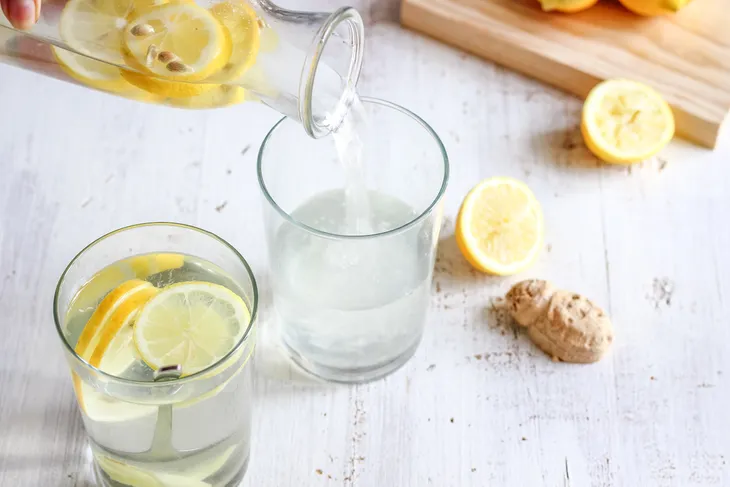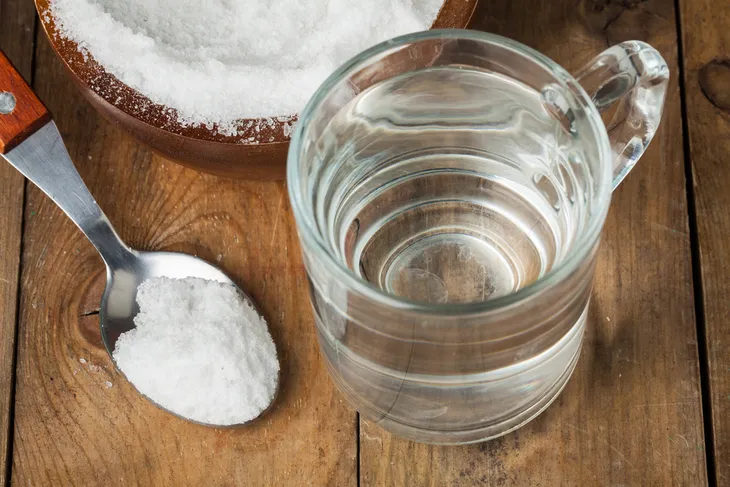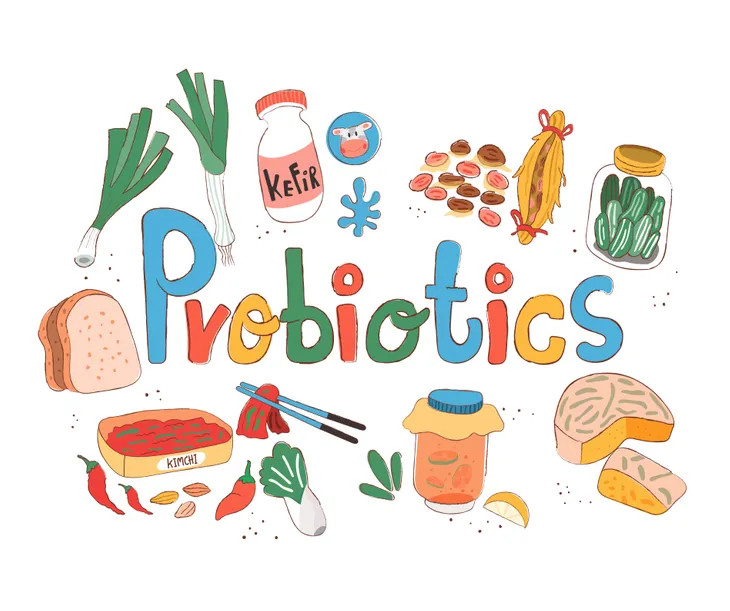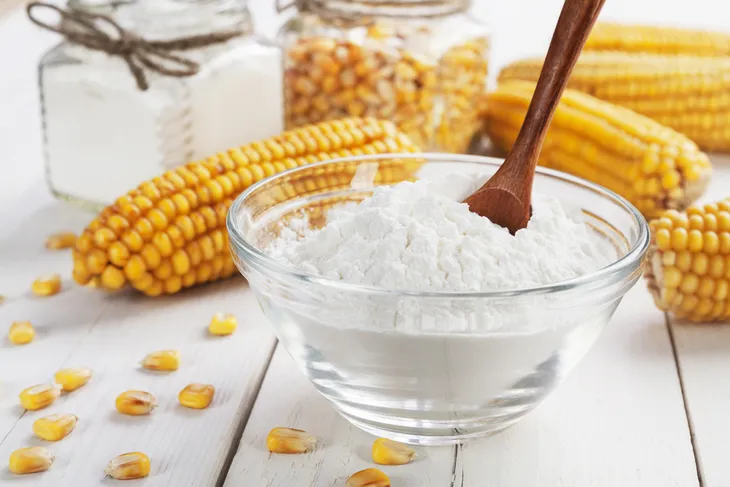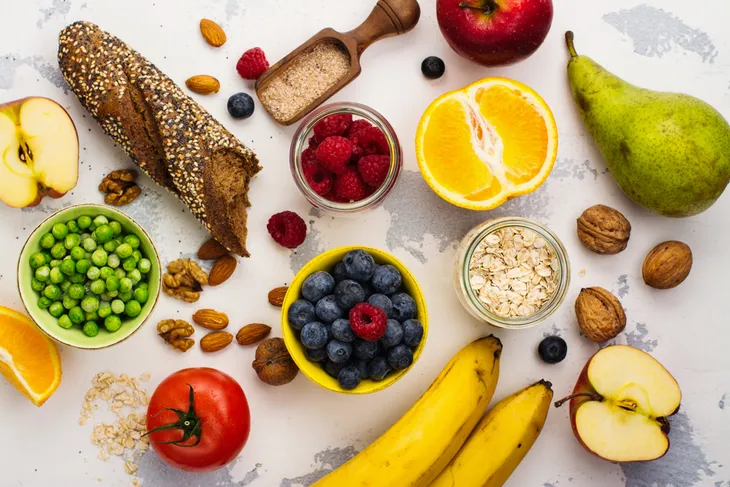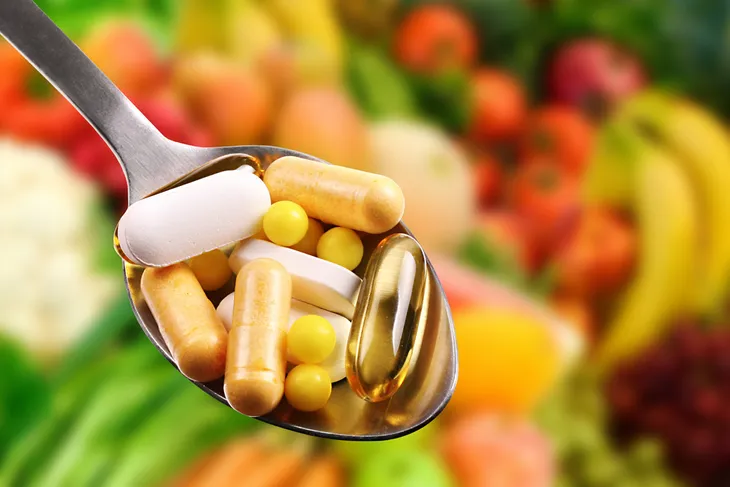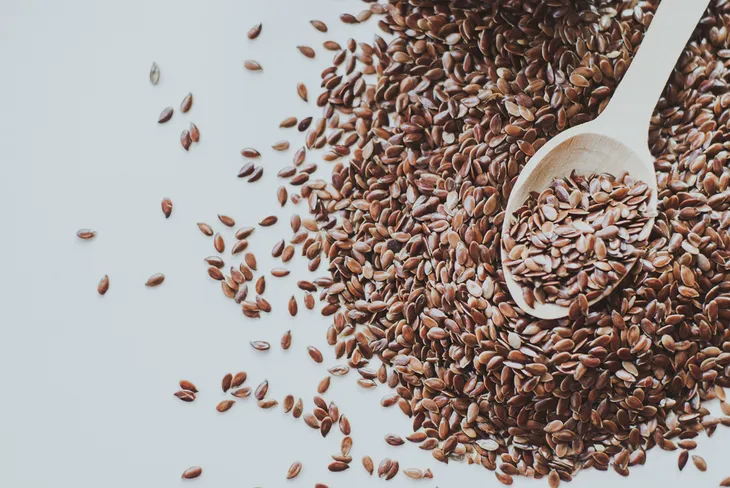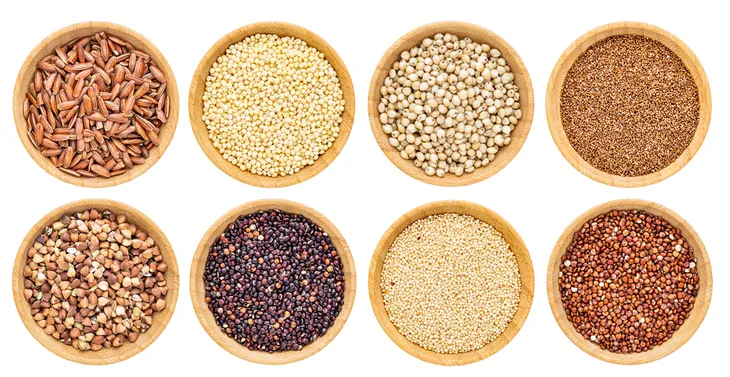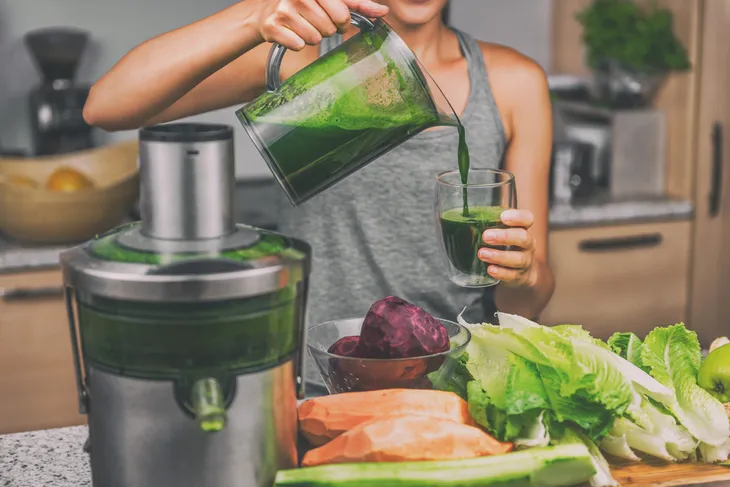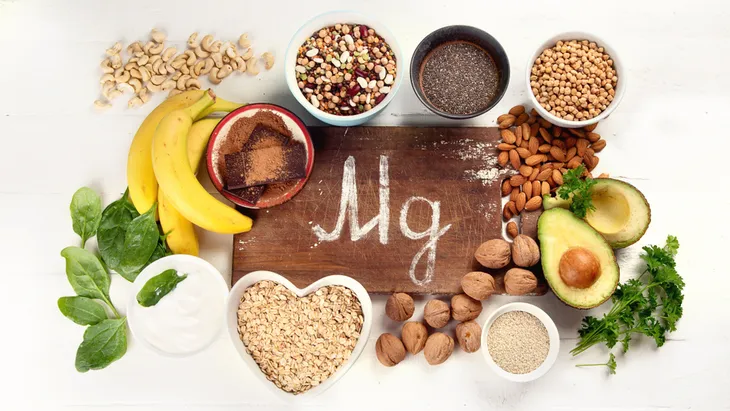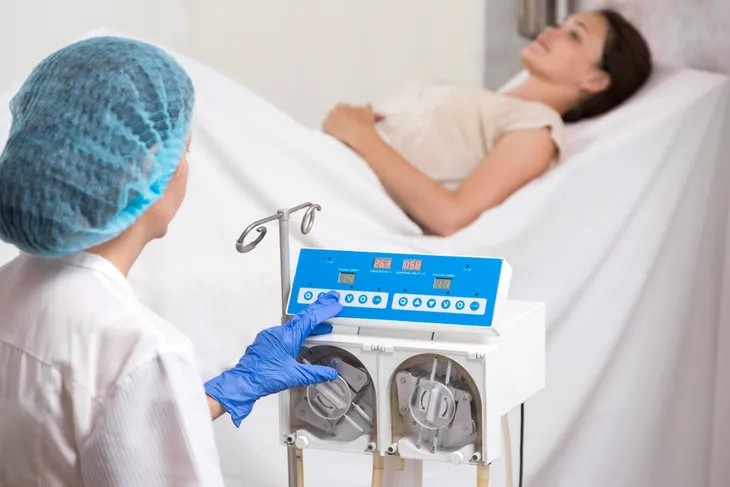Colon cleanses are intended to rid your body of excess waste that has built up in your colon. The colon, also known as the large intestine, is a substantial part of your digestive tract. After food is digested it moves from the stomach to the small intestine. Once it reaches the colon more nutrients and water are absorbed. After that, the colon finishes the break down of food to prepare it to exit your body.
People will use colon cleanses for various reasons. Some believe that when stool that sits in the colon for too long it can release toxins, while others use it to reduce bloating. Your doctor is an excellent resource when determining if you need a colon cleanse and if so how it should be done. In this article, we’ll talk about the different ways you can cleanse your colon naturally to move waste right out of your body.
1. Water
One of the best and most natural ways to cleanse your colon is by drinking six to eight glasses of water each and every day. Drinking plenty of water will keep you hydrated and keep your bowel movements regular. Healthline suggests drinking lukewarm water and eating foods high in water content like watermelon, celery, and tomatoes.
Water is an essential part of your body and your large intestine. When properly hydrated, your body will draw less water out of your colon. This will keep water in your colon and as a result maintain stool soft which makes it easier to have bowel movements. If you have a hard time remembering to drink enough water, keep a water bottle with you at all times. Have specific intake goals throughout the day. With a little planning, you can easily get six to eight glasses of water down every day.
2. Saltwater
Drinking a mixture of salt and water is another way to cleanse your colon. “Before eating in the morning, mix 2-teaspoons of salt with lukewarm water. Drink water quickly on an empty stomach, and in a few minutes, you’ll probably feel an urge to go to the bathroom,” according to Healthline.
Using a saltwater solution can be helpful if you have irregular bowel movements or are constipated. You’ll want to talk to your doctor to make sure using salt water to clear your large intestine is safe for your body. Some people who are sensitive to salt might need to stay away from using saltwater as a natural colon cleanse.
3. Probiotic
Probiotics are the good bacteria that live within your gut. These bacteria have multiple health benefits for the digestion and immune system. There are foods that contain probiotics like yogurt, sauerkraut, and kefir. Or if you prefer a probiotic supplement, some capsules contain these healthy bacteria to keep your gut healthy and keep the bad bacteria out.
“Probiotics introduce good bacteria to the gut with the help of fiber and resistant starches. These curb inflammation and promote regularity — two elements of digestive health related to the colon,” reports Healthline. If you are looking for a way to clean your colon naturally while maintaining a healthy bacteria balance in your gut then a probiotic may be a good solution for you.
4. Starches
Starch is found in founds like potatoes, legumes, and rice. It cleanses the colon by increasing the intestine’s microflora. Eating foods that can help increase your stool bulk and clean your colon can reduce bloating and improve regularity. For the best results, add other natural colon cleansers into your diet to reap the most benefit.
Starches can be high in carbohydrates, which may not work well for dieters or people with diabetes. If you want to try eating starches to help cleanse your colon look for low carbohydrate options that won’t significantly affect your blood sugar.
5. High Fiber
Fiber is a nutrient found in plants that cannot be broken down or absorbed by the digestive system. As a result, fiber helps to move waste through the body and builds stool bulk. How much fiber you need is dependent on both your age and gender, somewhere between 21-grams to 38-grams per day says the Mayo Clinic.
There are two types of fiber, soluble and insoluble. Soluble fiber can be dissolved in water while insoluble fiber cannot. Eating foods that bring both types of fiber into your diet is best for removing stool. Fiber is found in vegetables, fruit, seeds, and nuts. A diet with healthy amounts of all those fiber filled foods will help you cleanse your colon naturally.
6. Herbal Teas
Who doesn’t love sitting with a mug of warm tea, especially on a cold, winter day? Well if you’re looking to support your digestive health then herbal tea is another option. “Laxative herbs like psyllium, aloe vera, marshmallow root, and slippery elm may help with constipation,” reports Healthline.
Drinking tea is a soothing way to cleanse your colon naturally. The warm water and herbal infusion can gently get your bowels moving and rid your body of unwanted waste. However, we do suggest that you follow the suggested consumption guidelines for each tea so you drink the right amount to cleanse your colon.
7. Supplements
If you want to cut to the chase and cleanse your colon naturally but still prefer to avoid medication, then a natural supplement might be the best choice for you. Supplements vary significantly in ingredients, dose, and strength. Finding a cleansing supplement that also contains a probiotic will help keep your gut microbiome balanced after your cleanse.
Since supplements can contain all sorts of ingredients and are not reviewed by the FDA you need to do your research and talk to your doctor before you take any. Some herbs and supplements can interact with prescription medications making them either stronger or less effective. Refer to your doctor or pharmacist with any questions.
8. Flaxseed
Adding flaxseed, also known as linseed, to your diet can be an effective way to cleanse your colon. According to VeryWell Health, “flaxseed is effective in speeding up intestinal movement, resulting in an increased frequency of bowel movements.” If you grind your flaxseed you’ll get the added bonus of the protein, fiber, omega-3, and other vitamins this tiny seed offers.
There are many ways to add flaxseed to your diet. Add it to baked goods, sprinkle it on top of cereal or yogurt, or put it in your salad for an added crunch. Whichever way you choose to add it to your diet make sure to do so in small quantities, slowly adding more until you’ve achieved the desired effect. Too much flaxseed at once can cause stomach upset and loose stools.
9. Whole Grains
When most people hear the words “whole grains” they typically think of whole grain bread. But there are so many other foods that are considered whole grains that can help you clean out your colon and keep your bowel movements regular. “Brown rice, barley, quinoa, oats, millet, rye, spelled, buckwheat, amaranth, and other new-to-you foods are great sources of fiber as well as vitamins and minerals your diet may be lacking,” says VeryWell Health.
Whole grains are filled with nutrients that will get your gut moving. If you’re bored with the same old foods and want to try something new, try introducing one of these whole grains into your diet and make a new recipe. Try a cold quinoa salad with mixed greens, grilled chicken, and lemon vinaigrette to mix it up a bit. It might take a little creativity, but it is possible to find a good balance of whole grains in your diet that will ultimately boost your colon health.
10. Juicing
Juicing with fruits and vegetables has been a popular dietary aid for some time. Juice does contains some fiber and nutrients that can help clean out your colon. It’s important to point out that because juice doesn’t contain solid pieces of fruit and vegetables, the fiber content is low. Yet, juice can be an excellent way to hydrate your body which will improve your bowel movements.
Popular foods to juice are apples, lemons, carrots, oranges, and cucumbers. No need to only drink juice to cleanse your colon. Just adding some to your diet on a regular basis can make a positive difference. Choose a flavor combination that you like best and let the juice do the rest.
11. Magnesium
Magnesium is a mineral that helps to manage many of your body’s functions. One of its many uses is as a laxative. You can find magnesium based laxatives at most pharmacies. Magnesium works to soften the stool, allowing it to pass through your colon more easily. If you choose to use magnesium, you’ll want to read the directions of the label thoroughly to ensure you are using it correctly.
Since magnesium also plays a key factor in your blood pressure and heart rhythm you will also want to talk to your doctor before starting it. Even though it is an over the counter product it may be contraindicated for some people.
12. Irrigation
Colon irrigation or a colonic cleanse is a procedure that uses water to flush out the colon ridding the body of waste. There are offices that offer this service, by inserting a tube in the anus and flushing large quantities of water in and letting the waste flow out. There are additives that can be put in the water flush based on your needs.
Before you go out and get your colon irrigated talk to your doctor and do your research on reputable colon cleansing practitioners. There are risks associated with this type of cleanse like bowel perforation, cramping, and electrolyte imbalance to name a few. However, it is an incredibly effective method but we just want to make sure it is right for you!

